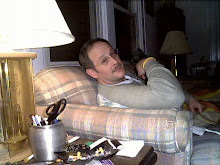Last night, before bed, I was watching Father George Rutler's series Christ in the City on EWTN (it's part of my weekly line up of shows and I highly recommend it for any thinking Catholic). Father mentioned that all attacks on the Church take three traditional forms; attacks against the truth, attacks against the priesthood, and attacks against the family. I thought I'd take time to look at each of these assaults as evidenced in the modern world. I'll begin with truth.
Truth, according to Thomas Aquinas, is that which conforms to reality. The philosophers of the Enlightenment had a hard time attacking that definition of truth, so they went for the secondary part of the definition and decided instead to attack reality, reasoning that if there was no objective reality, there was nothing with which to conform, ergo, there could be no objective truth. Rather than acknowledge that which our experience dictates, that is that "existence precedes essence", they stood existence on its head and postulated that we cannot know the thing itself, we can only know the thing by our idea of it. This is what Descartes had in mind when he famously stated "I think, therefore I am."
Today, such notions are still alive and well, regardless of how counterintuitive they seem to be. Carried on predominantly in the field of physics, primarily in quantum mechanics, the idea that nothing can be known with certainty is all the rage. Certainly, if such is true for the physical world, if there are no scientific truths, if there are no absoute truths in nature, how can there possibly be any metaphysical truths? Indeed how can there be such a thing as metaphysics at all?
The idea that gets left behind here is that quantum mechanics, the point at which these folks claim that reality gets fuzzy, is far removed from that which Aquinas identified as proper knowledge of things, that is direct knowledge by virtue of experience, sensorial knowledge. To attain knowledge of the subatomic world we must rely on instruments which are themselves another layer of theory between us and that which we wish to know. The data we acquire through such instruments is interpreted through the tool of mathematics. Now, mathematics is a wonderful predictive tool; it is an incredibly accurate method of modelling that which we cannot observe directly, but it must be remembered that it is exactly that, a model. It is not the thing itself, nor does it provide us with proper knowledge of the thing observed. As an example, consider a graph on which we establish the horizontal axis as time, and the vertical axis as distance. We then plot the progress of a persom walking at a set rate from a given point. We can use the graph to predict where that person will be at a future point in time. We can witness where they were at a given time in the past, but we have not witnessed motion, we have only modelled it. Mathematics can be used to accurately describe reality, but it is not reality itself.
In a similar vein, there are those who deny the existence of morla and ethical truths. Such persons claim that morals are a matter pf personal well being and that the best we can hope to do is associate with those who have similar world views. There are those who contend that we ought not impose our moral views on others. We "ought not say ought not." This is the contradiction upon which this case rests. Any rule is an imposition except the rule that we have no right to tell others what to do.
For a deeper appreciation of the subject of how science can lead one astray from an adequate understanding of reality, I highly recommend Dr Anthony Rizzi's book The Science Before Science: A Guide to Thinking in the 21st Century.
In my next post, we'll look at attacks on the priesthood. Until then, all the best. Joe
My new blog: The Radical Life
12 years ago

No comments:
Post a Comment